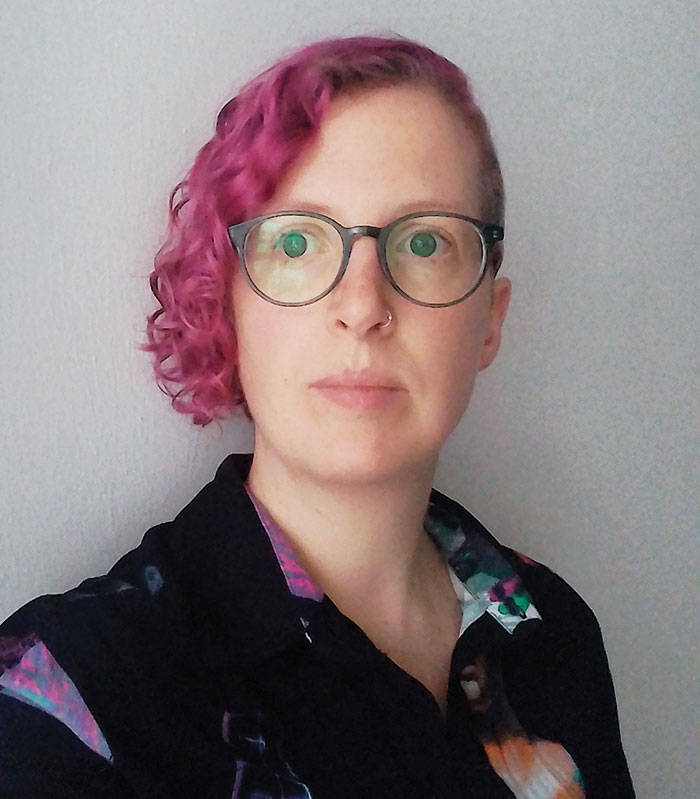A young boy, white and a math genius, struggles to cope with the loss of his mother—by death or desertion—and the limitations of an unnamed neurodivergence, which we all know is autism. The necessity of rigid routines, an aversion to small talk, and the fixation on specific colors, maybe red or yellow, dominate his life. But in learning to accept the absence of his mother, he also “overcomes” his “affliction” by abandoning his routines, connecting with other people on their terms, making friends with “normal” boys, and adjusting to hostile environments while nudging the adults around him toward growth.
Does this sound familiar? It very well might, because it’s the plot of not one, not two, but three books nominated for the Booker Prize—which is awarded to a novel written in English and published in the U.K and Ireland—during the past 20 years. Beginning with The Curious Incident of the Dog in the Night-Time by Mark Haddon in 2003 and continuing through Bewilderment by Richard Powers in 2021 and How to Build a Boat by Elaine Feeney in 2023, the Booker Prize seems to have an inclination toward championing an autistic stereotype so worn, it’s ragged and full of holes.
The collective understanding of autism and neurodivergence has taken enormous leaps since The Curious Incident was published; the neurodiversity movement is flourishing, and autistic authors are finally beginning to reach the mainstream. Nevertheless, Haddon’s novel seems to have cast a particularly long shadow.
I read The Curious Incident in 2003, when I was 18, and saw nothing of my own experience reflected in the book, save that its protagonist and I had a mutual aversion to the color yellow. Yet this first introduction to autism had such a powerful impact on me that even when I began to suspect I was autistic—two years ago, at the age of 37—I kept doubting myself. It was only when I read articles and memoirs written by women and nonbinary authors diagnosed with autism late in life, such as Sara Gibbs or Hannah Gadsby, that I finally saw myself reflected on the page.
How to Build a Boat repeats many plot points from The Curious Incident beat for beat, and rehashes many of the stereotypes, too. Even though Feeney is the parent of a neurodivergent child, her narrative feels symptomatic of the outsider’s gaze. Her protagonist, Jamie, is written with sympathy, but an overemphasis on difficulty communicating and connecting with others, the ability to feel empathy, and emotional dysregulation reinforce the idea that autism is a “condition” to be managed and a burden to friends and family rather than a distinct neurotype.
To complicate matters, How to Build a Boat sits on the same nominations list as All the Little Bird-Hearts, the debut novel from autistic author Viktoria Lloyd-Barlow. All the Little Bird-Hearts breaks the mold: autism is just one factor in the narrative, which centers on the protagonist’s relationship with her daughter and intrigues involving their new neighbors.
The Booker Prize,which is awarded by a panel of five judges appointed by the Booker Prize Foundation, has promoted its inclusion of a “neurodiverse author” on this year’s longlist, but this language choice alone shows how little it understands neurodiversity. According to Nick Walker, author of Neuroqueer Heresies, “There is no such thing as a ‘neurodiverse individual.’ The correct term is ‘neurodivergent individual.’ An individual can diverge, but an individual cannot be diverse.”
In the end, however, neither All the Little Bird-Hearts nor How to Build a Boat made it onto the Booker shortlist, announced last month. The Curious Incident and Bewilderment also failed to make the shortlist in their respective years. All of which suggests that autism narratives, the best and the worst, are still considered a niche rather than of universal literary interest.
Ali Wong recently wrote in this column, “The percentage of books published by disabled authors is still disproportionate and paltry. It’s wonderful to see more work out there, but crumbs aren’t enough. Disabled people deserve and demand more.” The autistic community, similarly, deserves more.
This year’s Booker Prize longlist is a sign that, during the past 20 years, the publishing world has advanced and stagnated when it comes to autistic representation. Viktoria Lloyd-Barlow’s nomination is a huge boost to autistic writers who felt our writing had no place in the publishing world. I hope that her breakthrough creates more space for autistic authors to write about whatever strikes our fancy, and that the reductive tropes and caricatures of the past can finally be consigned to literary history.
Aisling Walsh is a queer and neurodivergent writer and researcher living in Ireland.
This content was originally published here.
